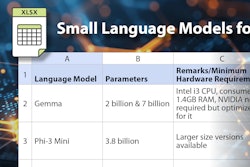Enterprise sales cycles are becoming increasingly complex in today's packaging machinery industry. According to research from Gartner, large deals involving multiple decision-makers are two to three times more likely to close when an internal advocate, or “champion,” is actively involved. These deals typically have an average of 6.8 stakeholders, each with their own priorities and influence.
Without a champion, aligning the needs and concerns of multiple decision-makers becomes an uphill battle. It’s no longer just about selling your product or service — it’s about managing relationships, ensuring your solution meets varied criteria, and guiding stakeholders toward a shared vision of success. Simply put, you don't have a deal if you don’t have a champion.
Why do you need a champion?
A champion is an internal advocate with influence, authority, and, most importantly, the willingness to help you win the deal. David Sandler, the founder of Sandler Training, famously said, “If you don’t have a champion, you don’t have a deal.” Champions provide critical insights, help navigate internal politics, and ensure your proposal gets in front of the right people in the right way.
It’s important to distinguish between a “champion” and a “coach.” While a coach can offer valuable advice and guidance, they don’t have the authority or influence to push your deal forward. Only a champion can act as your internal advocate with the power to drive consensus and facilitate decision-making.
Techniques for engaging your champion
Building a relationship with a champion requires skill and strategy. Here are a few methods that can help you leverage the influence of a champion effectively:
1. The pre-posal technique
The pre-posal technique involves sharing your proposal with your champion before it’s formally presented to the broader decision-making group. This allows your champion to provide feedback and ensure that your solution aligns with the criteria of all stakeholders. You might say, “I don’t need the business, but I want it if we’re a good fit. Let’s make sure this proposal meets your criteria 100% before presenting it to anyone else.” This approach empowers your champion and ensures your proposal has the best chance of success when it’s time to present.
2. The psychological baton of power
When working with your champion, it is essential to give them control over the process. This can be done by asking them to critique your proposal and practice how they’ll present it to others if you can’t be there yourself. For example, you might ask, “What types of responses or questions might come up during the meeting that could be potential issues?” This helps your champion feel more involved while also preparing them to advocate for your solution effectively.
3. The grappling hook technique
Complex sales can often hit roadblocks during the process. Champions are invaluable when it comes to breaking through these barriers. You can use the grappling hook technique by saying, “I might need your help occasionally if things get stuck. Would you be willing to assist me in breaking through these logjams?” If they’re unwilling to help, you may need to reconsider whether they’re truly a champion.
4. We both have a role
In situations where your champion indicates that you won’t be able to meet with all decision-makers, set clear expectations around your roles. For example, you could say, “Your role is to make sure we align with the decision-makers, and my role is to address any technical or experiential questions that may arise.” By clearly defining responsibilities, you ensure that your champion knows how to best help you win the deal.
Overcoming RFP challenges
Many sales professionals are hesitant to engage in RFP processes where they don’t have direct access to decision-makers. While this can be risky, there are ways to keep the door open. One technique is acknowledging the uncertainty by saying, “I don’t want to be ignorant of what’s driving this request or arrogant in assuming we’re the right fit without conversation.” This frames the conversation as a collaborative effort and signals that you’re open to a dialogue rather than blindly responding to an RFP.
If the company refuses to allow you a conversation, you must decide whether to walk away or proceed with a low likelihood of winning.
Building deeper relationships
Following a set process to succeed in today's competitive market is not enough. As a salesperson, you need to do significant, personal, and unexpected things to build deeper relationships with your champion. This could mean taking the time to understand their personal drivers or offering unexpected value throughout the sales process. The key is to go beyond the transactional and demonstrate genuine investment in their success.
Finding and nurturing a champion in complex sales is vital to closing deals and building lasting client relationships. Without a champion, you risk losing in the noise of competing priorities and internal politics. You can engage your champion effectively and drive better outcomes by using techniques like the pre-proposal, the psychological baton of power, and the grappling hook.



















